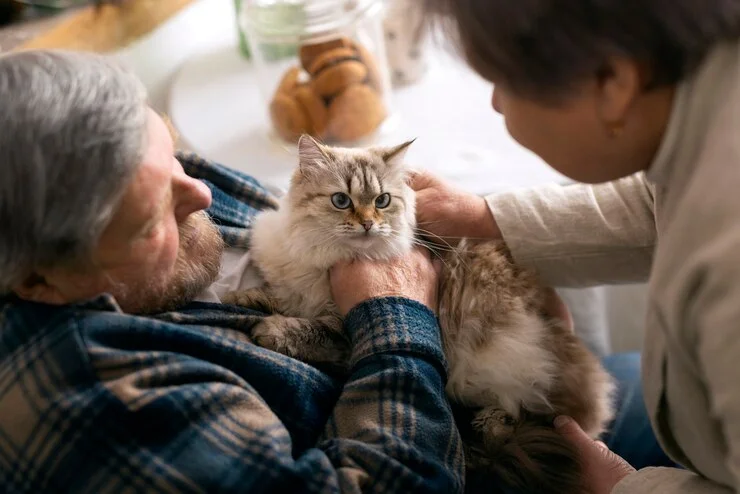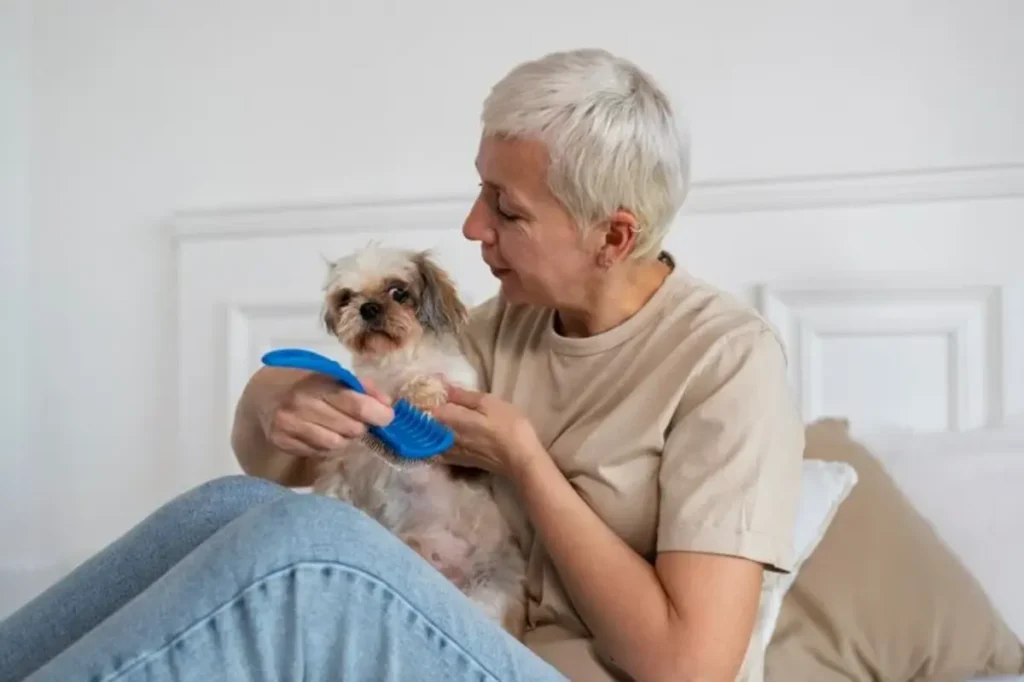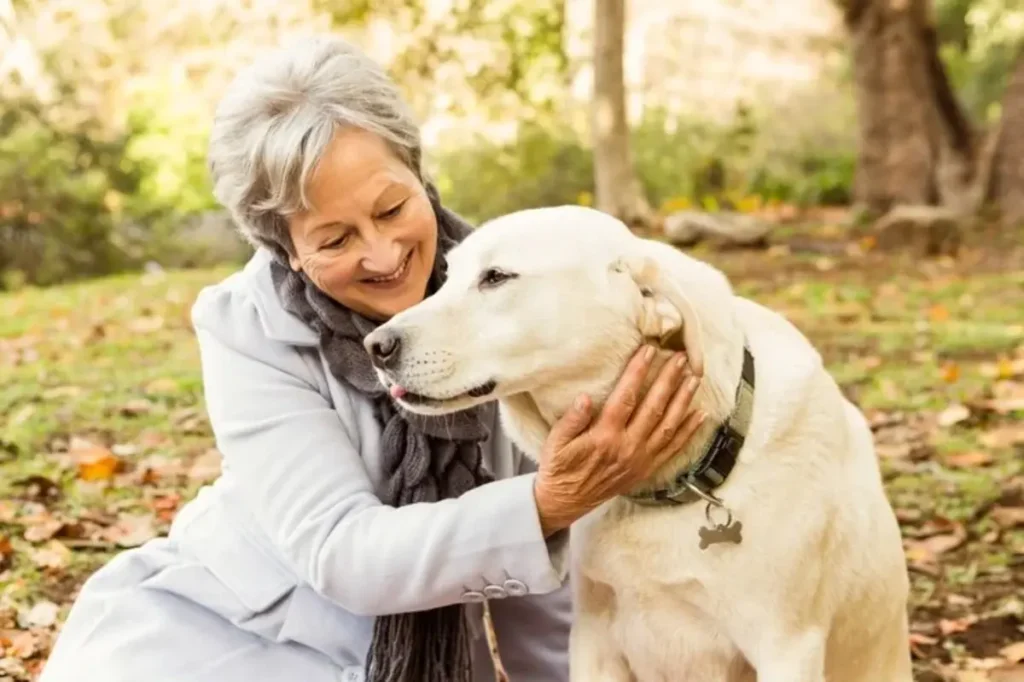-
P, 193, A, Ramakrishna Samadhi Rd,Kolkata- 700054
P, 193, A, Ramakrishna Samadhi Rd,Kolkata- 700054

Ensure your senior pet stays healthy with preventive pet care. Discover expert tips and advice from one of the best pet clinic in Kolkata on how to care for your aging pet, improving their quality of life and extending their years.

As our beloved pets grow older, their needs change. Just like humans, senior pets require more attention and specialized care to ensure they live happy, healthy lives. Preventive care for senior pets becomes even more essential to address the age-related health issues that can arise. This blog will explore the importance of preventive pet care for senior pets, provide valuable tips, and answer frequently asked questions about how to ensure your older pet stays in the best health possible.
When a pet enters their senior years, typically around the age of 7 or 8 for dogs and even earlier for cats, their health can start to decline in various ways. Aging pets are more prone to conditions such as arthritis, dental disease, obesity, and cognitive dysfunction. Preventive care plays a vital role in slowing down the progression of these issues and can help detect potential problems before they become serious.
By investing in preventive pet care for senior pets, you can:

Taking proactive steps to care for your senior pet can help ensure they remain active, happy, and comfortable in their golden years. Here are some essential aspects of preventive care:
Regular visits to a trusted veterinarian are crucial for older pets. These check-ups allow the vet to monitor your pet’s health, check for signs of aging-related diseases, and perform early screenings for conditions like kidney disease, diabetes, and heart problems.
What to expect during a senior pet check-up:
Just as people may require dietary adjustments as they age, the same is true for pets. Senior pets often experience a slower metabolism and may be more prone to obesity. This can exacerbate joint issues and lead to more serious health problems.
Tips for feeding senior pets:
Dental health is one of the most overlooked aspects of preventive pet care. As pets age, they are more likely to develop dental issues like gum disease, tartar build-up, and tooth loss. Poor dental health can lead to more severe issues such as infections that affect the heart and kidneys.
Tips for dental care in senior pets:
Arthritis is a common condition in senior pets, particularly in larger breeds. As pets age, their joints can become stiff and painful, making movement difficult. Preventive care for senior pets should include regular checks for mobility and addressing joint health early.
Joint care for senior pets:
Just like physical health, a pet’s mental well-being is important in their senior years. Cognitive dysfunction syndrome (CDS) can affect senior pets, leading to symptoms similar to dementia in humans, such as confusion, disorientation, and changes in behavior.
Keeping your pet mentally active:
Read here for more about Preventive Pet Care
One of the most frequently asked questions is how often senior pets should visit the vet. While younger pets may only need annual check-ups, senior pets require more frequent visits.
Recommended vet visit schedule for senior pets:
The impact of preventive care for senior pets goes beyond just addressing current health issues. By managing your pet’s health proactively, you can catch potential problems early, preventing them from becoming life-threatening. Furthermore, good preventive care leads to an improved quality of life, which means your pet can enjoy their senior years with less pain and more enjoyment.

Q1: At what age should I start preventive care for my pet?
It’s important to begin preventive care when your pet is still young, but senior pets definitely require more attention. For most pets, you should start thinking about more frequent vet visits and specialized care once they hit around 7 years of age.
Q2: How can I tell if my senior pet is in pain?
Senior pets may not vocalize their pain, but signs include limping, reluctance to move, changes in behavior (irritability or lethargy), and difficulty climbing stairs or jumping onto furniture. Always consult your vet if you suspect your pet is in pain.
Q3: Is it necessary to change my senior pet’s diet?
Yes, senior pets often have different dietary needs than younger pets. Their metabolism slows down, and they may require food that is lower in calories but higher in nutrients to support aging joints and organs.
Q4: Can I prevent my senior pet from developing arthritis?
While you can’t always prevent arthritis, early intervention and preventive care can help manage the condition. Regular exercise, weight management, and joint supplements are essential.
Preventive pet care for senior pets is essential for ensuring that your furry companions live long, healthy, and happy lives. By addressing issues such as nutrition, dental care, joint health, and mental stimulation early, you can help reduce the risk of serious health problems. Routine vet check-ups and timely interventions can make a significant difference in your pet’s overall well-being.
As your pet ages, it’s important to stay proactive about their health. With the right care and attention, you can help them enjoy their senior years comfortably and confidently. If you’re looking for expert guidance on preventive pet care, consider seeking advice from a best pet clinic in Kolkata, where professionals can provide tailored advice and treatments for your senior pet.